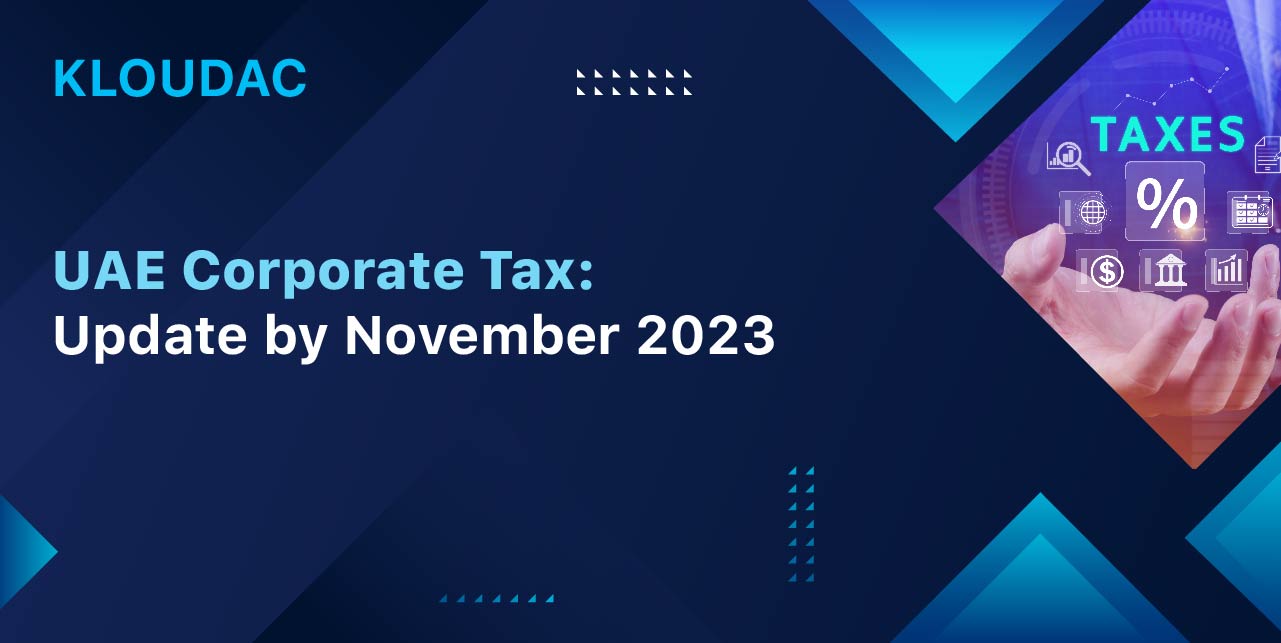This blog highlights the UAE’s growing appeal for global businesses due to its strategic location, business-friendly atmosphere, and favorable tax policies. It serves as an in-depth guide on corporate taxation, focusing on the regulations and associated benefits.
Starting from June 2023, the UAE’s Corporate Tax Law imposes taxes on taxable income during specific periods. The responsibility falls on the taxable person, necessitating self-assessment through the submission of a Corporate Tax Return to the Federal Tax Authority. This legislative move aligns with global calls for a minimum corporate tax, adhering to international principles.
Entities subject to Corporate Tax include UAE-incorporated companies, individuals with licensed business activities, and non-residents with a “Permanent Establishment” in the UAE. Despite impacting Free Zone companies, they can benefit from a 0% Corporate Tax rate on Qualifying Income under specific conditions.
Exemptions from Corporate Tax extend to government entities, government-controlled entities, certain extractive businesses, qualifying public benefit entities, pension and social security funds, and qualifying investment funds or wholly-owned UAE subsidiaries of government entities.
The concept of a “Permanent Establishment” in international tax law determines the tax liability for foreign entities in the UAE. “Resident Persons” for Corporate Tax purposes include UAE-incorporated entities and foreign companies managed and controlled within the UAE, while “Non-Resident Persons” lack a Permanent Establishment in the UAE.
Corporate Tax operates on residence and source principles, taxing Resident Persons on income from domestic and foreign sources and Non-Resident Persons solely on income derived from UAE sources. Certain incomes, such as dividends and capital gains, are exempted, and eligible business expenses are deductible for Corporate Tax purposes.
The UAE’s Corporate Tax rate is 9% on taxable income exceeding AED 375,000, but Qualifying Free Zone Persons enjoy a 0% rate on Qualifying Income. However, the lack of a comprehensive definition for “Qualifying Income” introduces uncertainty, necessitating a need for clarification.
Certain UAE-sourced income paid to non-residents may be subject to a 0% withholding tax rate, with transactions between UAE residents exempted from withholding tax.
Qualifying Free Zone Persons must meet specific conditions, including maintaining sufficient substance in the UAE, deriving “Qualifying Income,” avoiding standard Corporate Tax rates, and complying with transfer pricing requirements.
Tax Groups, formed by resident legal entities meeting specific criteria, enable consolidated tax calculations. The Corporate Tax process involves mandatory registration, obtaining a Corporate Tax Registration Number, and filing returns within nine months from the end of the relevant period.
Cabinet Decision 100 of 2023 & Ministerial Decision 265 of 2023, addressing the taxability of freezone persons in UAE
On November 3, 2023, the Ministry of Finance (MoF) in the United Arab Emirates (UAE) released two pivotal decisions: Cabinet Decision No. 100 of 2023, addressing the determination of qualifying income for qualifying free zone persons under Federal Decree-Law No. 47 of 2022 on the Taxation of Corporations and Businesses, and Ministerial Decision No. 265 of 2023, outlining qualifying and excluded activities under the same decree.
Despite their publication date, these decisions are set to be effective from June 1, 2023. They replace the previously issued Cabinet Decision No. 55 of 2023 and Ministerial Decision No. 139 of 2023, respectively. The updated decisions bring clarity to crucial aspects of the Qualified Free Zone regime, expand the roster of ‘Qualifying Activities,’ and introduce other significant changes pertinent to taxpayers aspiring to qualify as a Free Zone Person.
KLOUDAC Accounting Firm Dubai, UAE
In essence, this blog from KLOUDAC is a comprehensive guide for businesses and digital marketers navigating the evolving UAE corporate tax landscape, providing insights into updated regulations and their implications for various entities.
